Iranian Fans Flock To Ronaldo’s Hotel In Tehran
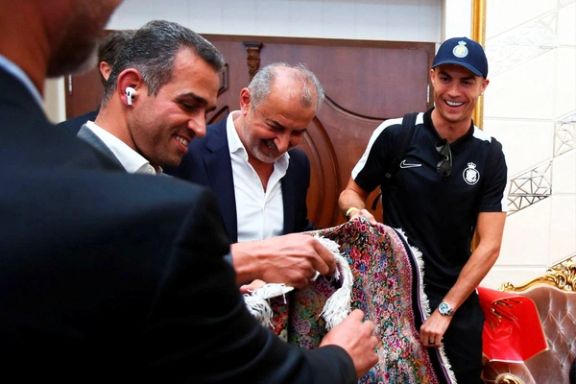
Ronaldo and his Saudi club Al Nassr FC have arrived in Tehran for an AFC Champions League match against the local Persepolis Football Club.

Ronaldo and his Saudi club Al Nassr FC have arrived in Tehran for an AFC Champions League match against the local Persepolis Football Club.
Ronaldo and his team are being protected in Tehran by the Iranian president's security team, according to Iranian media reports, amid sensitivities over Tehran-Riyadh relations which were recently restored after seven years of hiatus.
With chants of "Ronaldo, Ronaldo," the fans surged past law enforcement, flooding the hallways and common areas of the Espinas Palace Hotel, situated to the northwest of Tehran.
Many Iranians on social media are calling for a larger crowd to gather around the hotel Monday night and begin protests against the government. The heavy presence of security forces in the past few days has prevented any protest gathering on the death anniversary of Mahsa Amini.
Ronaldo made his first trip to Iran in preparation for a match against Iran's Persepolis scheduled for September 19th. The return match is set to take place in the Saudi capital, Riyadh, on November 27th.
The Brazilian star led the way as the initial high-profile player to embrace lucrative contracts with Saudi teams. The affluent kingdom is investing billions of dollars in its pursuit to transform into a dominant force in the realm of sports and entertainment.
The last instance of Saudi and Iranian teams meeting on their respective home grounds in the group stage or knockout rounds of the Asian Champions League occurred during the 2015 edition.
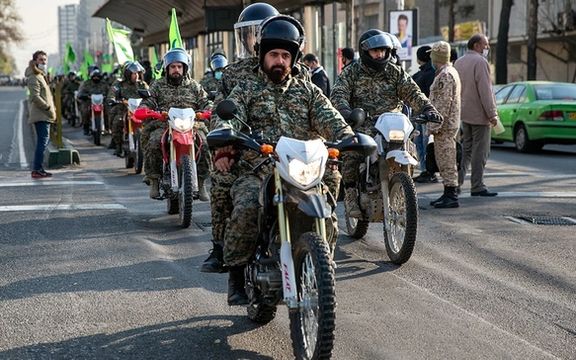
A second member of the of the Revolutionary Guard's Basij militia, who was shot by two unidentified assailants on Saturday in Iran's Fars province, has died.
The announcement comes from the Public Relations of the Basij Force in the Nurabad Mamasani region, identifying the individual as Pouya Khoshnam.
Prior to the incident, another Basij member, Yaser Shojaiyan, had also succumbed to his injuries. Additionally, two more individuals sustained injuries during the attack.
The assailants who used a shotgun to fire at agents while there were on duty have not been identified.
The armed attacks have taken place amidst a series of incidents targeting both military and paramilitary forces in various cities throughout Iran.
The incidents are occurring against the backdrop of ongoing protests in recent months, which initially emerged in response to the death of Mahsa Amini while in the custody of morality police and the subsequent suppression of demonstrators.
Such attacks have been directed at military personnel, law enforcement officers, and even clerics.
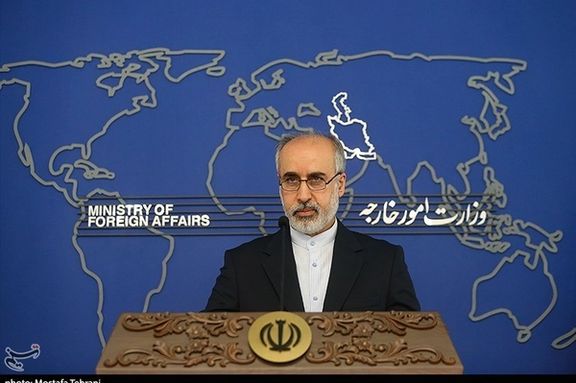
As five US hostages left Iran in a prisoner exchange deal, Iran said that only two of its citizens released by the United States will return to the county.
Iran's Ministry of Foreign Affairs spokesperson has Nasser Kanaani disclosed that two Iranians released in the United States will return to Iran, one individual will travel to another country, and two others will continue to reside in the United States.
One of the released prisoners who has decided to stay in the United States is Kaveh Lotfolah Afrasiabi who was arrested in January 2021. He was charged with acting and conspiring to act as an unregistered agent of the Government of the Islamic Republic of Iran, in violation of the Foreign Agents Registration Act (Fara).
The US Department of Justice said at the time that Afrasiabi has been secretly employed by the Iranian government and paid by Iranian diplomats assigned to the UN.
During a press conference, Kanaani remarked, "We have observed the freezing of a portion of Iran's assets in various countries, including South Korea. As part of our proactive foreign diplomacy, we are pleased to report that Iran's frozen assets in South Korea have been released. Today, these assets will begin to be fully under the control of the government and the nation."
He went on to say, "Regarding the prisoner exchange, it is scheduled to take place today, with five Iranian citizens set to be released from US prisons. Similarly, five imprisoned citizens who were in Iran will be handed over to the US side in a reciprocal manner, based on their own will. We anticipate that both of the agreements will be fully executed."
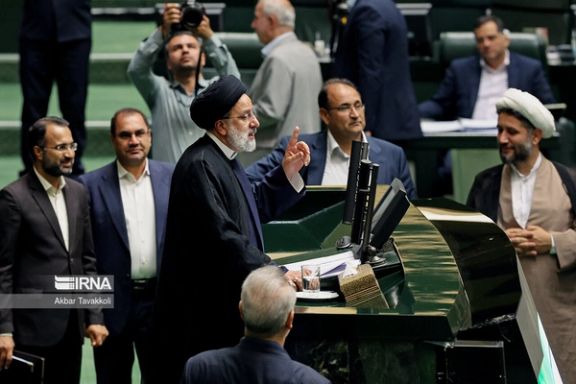
Iran's parliament, Majles, is at loggerheads with the government of President Ebrahim Raisi over its controversial development plan that is seen as lacking clarity.
According to a Tehran newspaper, some lawmakers have reportedly been calling on Speaker Mohammad Bagher Ghalibaf to return the bill to the economic committee for further review. They told reporters that lawmakers have serious concerns about the plan's economic implications for the country.
Iran draws up multi-year economic development plans as a guide for both the executive branch and also for the parliament that must examine and approve annual budgets.
The lawmakers also said that Ghalibaf has told the "country's high officials," meaning Supreme Leader Ali Khamenei in the Islamic Republic's jargon, that although the budget committee has made some changes in the plan, it still cannot be approved because it is deficient.
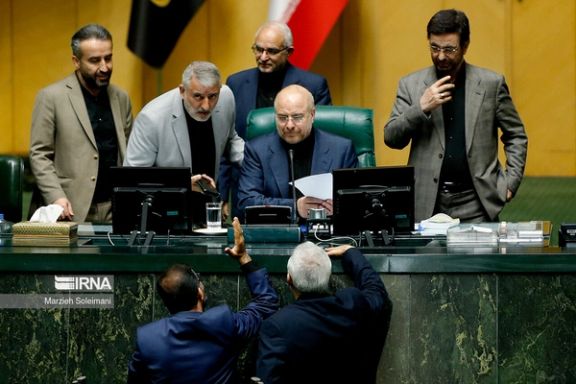
Earlier, former Minister of Economy Mehdi Karbasian had warned: "The 7th Development Plan cannot be implemented because of the inefficiency of the Raisi administration's officials. Also, Iranian economist Farshad Momeni had called the development plan drawn up by the Raisi's government as "strange and delirious." He had said that the plan lacked any clear logic. Another economist, Ali Ghanbari told Khabar Online website that the 7th Development Plan has been written in a perfunctory way.
Mohamad-Reza Pourebrahimi, the chairman of the parliament's Economic Committee told the daily, "We cannot approve parts of the plan. And we are not sure that all additions to the original text of the plan have been made by the Budget Committee." He added: "We are seriously critical of the plan and are preparing a letter to the Speaker of the Majles demanding another round of review by the committees before starting the final debate about it at the parliament.
Asked about the problematic parts of the Development Plan, Pourebrahimi said, "It is not clear in the plan how the government will fund major parts of the plan from." He added, "The government has not provided us with information, and there are parts of the plan that contradict the Constitutional Law. All of this should have been made clear in the report presented by the Budget Committee." He further added: "In its current shape, the plan is illegal."
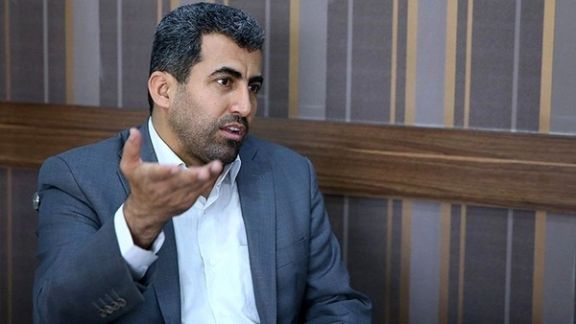
Meanwhile, Mojtaba Yousefi, a lawmaker from Ahvaz and a member of the Majles Presidium explained to Donya-ye Eqtesad that "It is natural for the Majles to change parts of the plan presented by the government. But we see that changes have been made to the Budget Committee's attestations and we do not know who made the changes." He further explained that these changes should not impose further economic commitments on the government.
Yousefi said: "Development plans are meant to determine the outlook for the country's development within the next five years and certain ministries are not supposed to change an existing law in order to serve demands by some." Yousefi's statement indicated that some of the "illegal" changes have been made by the government. He added that "most of what has been illegally added to the plan were done by the government after the initial review."
Rahim Zare, a member of the Budget Committee of the Majles suggested that part of the changes made by the government are meant to mend its annual budget in violation of the law. He added that in its current shape, the plan is not consistent with the situation of Iranian businesses and the economic difficulties they currently face.
Zare said: "The government has failed to address the plan's serious shortcomings in the areas of finance, banking and matters relating to businesses, trade and economy."
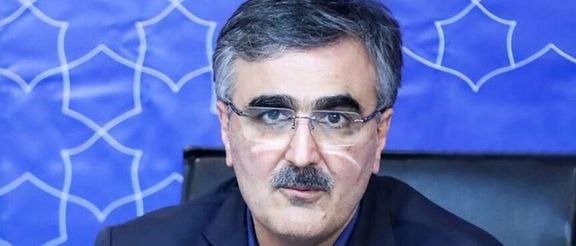
As the world expects a prisoner swap between Iran and the United States on Monday, Iran's central bank announced that the $6 billion released by South Korea was received on Monday.
Mohammad-Reza Farzin, the chairman of the Central Bank of Iran was quoted by the government's IRNA news website that the funds exchanged into euros totaled 5.73 billion and was transferred to six Iranian held accounts in two Qatari banks.
The United States and Iran announced a deal to release the blocked funds from South Korea in August in exchange for the release of five US citizens held hostage by the Islamic Republic.
Early on Monday, South Korea said it was doing everything to transfer the two full amount that had already been sent to Switzerland to be converted. Later, Iran's foreign ministry said the five prisoners were expected to be released on Monday.
The freed Americans will travel to Qatar and from there will be repatriated. Qatar has acted as mediator in the controversial deal, which has been dubbed by critics as the highest hostage ransom in history, amounting to $1.2 billion per individual.
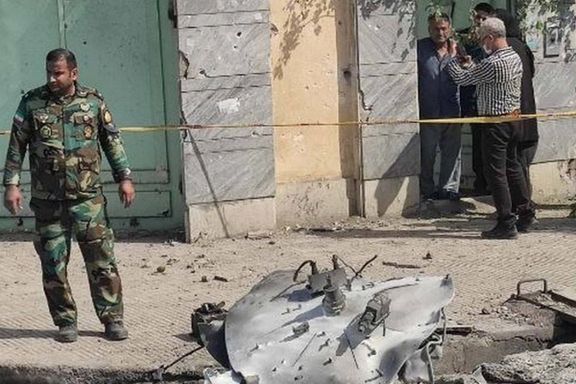
Iranian state media reported the crash of a military object in a residential area in the northern city of Gorgan, which the Defense Ministry calls "a malfunction in a military system."
Defense Ministry spokesperson said Monday, "In the process of testing defense and drone systems in a desert region, one of these systems suffered a technical defect and deviated from its main path."
He confirmed that debris fell in and around the city of Gorgan. No casualties have been reported, but several residential buildings have been damaged, according to videos sent to Iran International.
Various Iranian news outlets have disseminated photographs and videos showing a charred object on a street. The incident has also resulted in damage to nearby shops and vehicles, including shattered windows. In response, the local police have established a secure perimeter around the affected area.
Chief of Police for Golestan province, Mohammad Saeed Fazel Dadgar, claimed in an interview with the semi-official Tasnim news agency that the situation is under control. He additionally noted that some debris from the object had fallen in various parts of the city.
Furthermore, the IRNA state news agency reported that "the sound of the explosion resulting from the drone's impact resonated throughout the entire city."
In February, Iran attributed a drone attack on a military workshop in its central city of Esfahan to Israel. Israel has conducted a series of strikes targeting Iran's nuclear program and other facilities since the collapse of Tehran's 2015 nuclear agreement with the West, marking a protracted covert conflict between the two Middle Eastern adversaries.
While Israeli authorities seldom confirm actions undertaken by the nation's covert military units or its Mossad intelligence agency, Israeli Prime Minister Benjamin Netanyahu has consistently regarded Iran as the most significant threat to his country's security.






